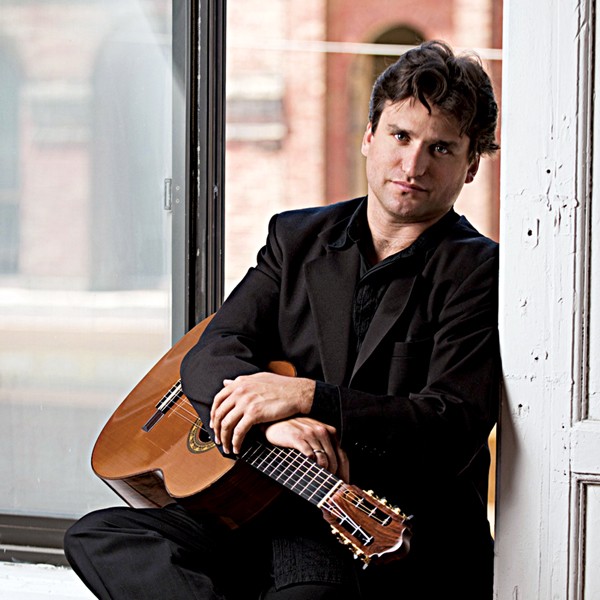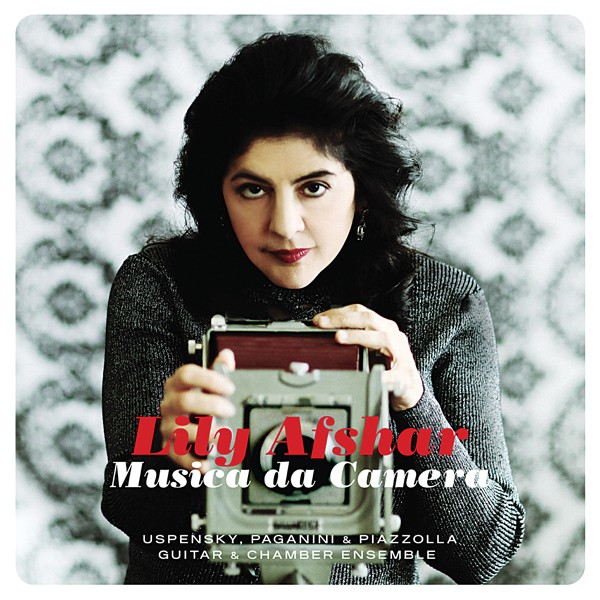October was a grim month for Memphis music, and lovers of the arts will have a few more souls to mourn on this Thursday’s Día de los Muertos. Case in point: the passing of one of the brightest beacons in the classical guitar tradition, Lily Afshar, who succumbed to cancer last week at her home in Tonekabon, Iran, on the Caspian Sea. Having led the classical guitar program at the University of Memphis since 1989, she was deeply woven into the fabric of Memphis life. Yet her kudos, including a Board of Visitors Eminent Faculty Award and a Distinguished Teaching Award at the university, barely convey the depth of her artistry and the degree to which she touched those who heard her play.
Ward Archer was a fan the minute he first heard her, and soon thereafter he would begin releasing the bulk of her recorded work. Indeed, it was Afshar who inspired him to launch Archer Records. I spoke with him last Friday about Afshar’s commitment to her art and her lasting legacy.
Memphis Flyer: You’ve been recording and releasing Lily Afshar albums for over 20 years now. How did you first encounter her work?
Ward Archer: I first met Lily at the Botanic Garden. I was playing in a band outside and she was playing inside at some function. I walked in and listened to her and we started talking. I was just starting to get back into recording after having gotten out of it, and we decided, “Let’s see what we can do with the classical guitar.” There was no Archer Records at that point. We just started recording and we both really liked what we were doing. I didn’t know much about classical guitar recording, but, being a Memphis guy, we like the microphones close, right? She talked me into releasing it and really talked me into starting the label. Later, I started getting calls to produce other classical guitar artists. Which I smartly declined, having barely survived the recording of Lily!
“Barely survived” in what sense?
It was challenging to make her happy with her own performance. She was really demanding about making sure there was no buzzing [from fretting notes] and would want to do a whole new take if there was the slightest buzz on any single note. She was the most demanding recording artist I’ve ever worked with, and very determined. I mean, she was the first woman to get a Ph.D. in classical guitar performance.
How would you characterize her repertoire?
She was a big fan of [Cuban guitarist and composer] Leo Brouwer. And it wasn’t all solo guitar. On the album Musica da Camera, some of the tracks had eight or nine instruments on it. And it’s really interesting stuff, based on Pushkin’s Eugene Onegin. Hemispheres, which was the second album that we did, had some pretty good originals — not stuff that she wrote, but stuff that was written for her. And she was mostly her doing her own arrangements. On her last album, Bach on Fire, she arranged all of that. It’s 25 or 30 pieces — it’s huge. Later in her career, she became a pioneer in arranging Persian folk songs for the classical guitar. No one could really touch her in playing Persian music, or anything in that genre.
Her Iranian heritage was very dear to her, wasn’t it?
I don’t think she had any immediate family left there, but her family had a place on the Caspian Sea, north of Tehran. I’ve seen pictures and it was really beautiful. She had six dogs there that she would go visit every year. She loved her dogs and was often doing benefits for the Humane Society. When she found out she had the cancer, she retired from the university and went back home to Iran to recuperate from the chemotherapy, but the cancer came back so aggressively. Yet she wanted to come back to Memphis one last time. The doctor [in Iran] told her, “Don’t get on that airplane because you won’t make it back.” But she came here anyway, and when I saw her she asked me if I thought she could make it back home. I said yes — I wouldn’t have said that to anyone else. She was always so determined, you know? And she did get back home in the end.


 Kelly Davidson
Kelly Davidson 
